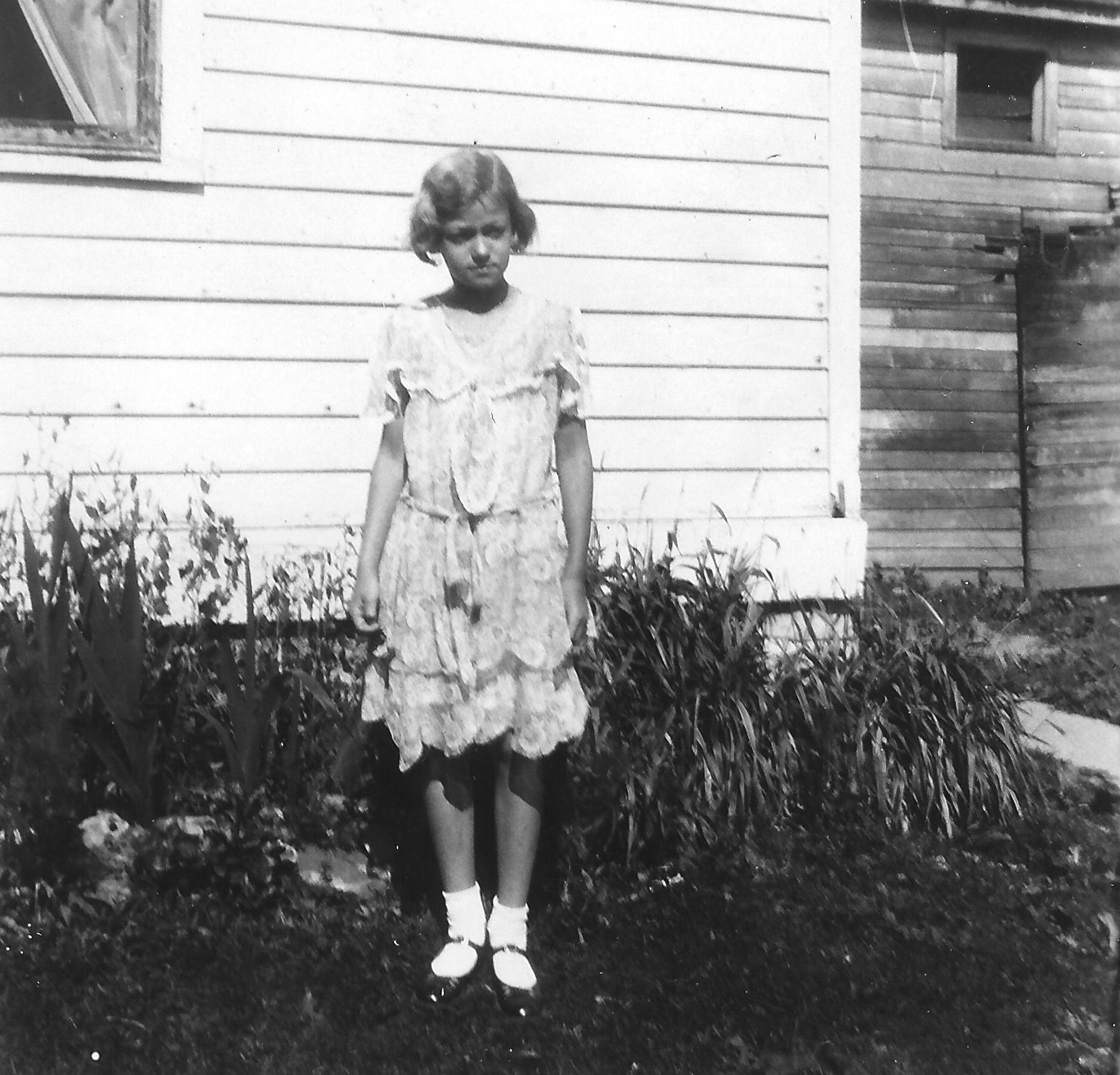Family Stories Collection: This special collection contains a selection of family history stories submitted by our readers. Originally published May 17, 2013.
Here are memories of life on an Illinois farm, as recalled by my mother, Adra Erickson Wallin (1922-2010)…
“I was born at home (all four of us were), at the farm at Barbers Corner on August 18, 1922, at six in the morning. A nurse and a doctor came—Dr. Ludwig—but I was born before he got there! My mother got a “hired girl” to help her take care of us for a few weeks.
We lived on three farms when I was growing up. My father grew corn, soybeans, oats, wheat, alfalfa, and hay for the animals. We had six horses, two cows, pigs, chickens, turkeys, and sheep… The Depression was hard on our family. When I was twelve, in 1934, we lost our farm and had to move. Everybody was poor then. We had a phone when I was little, but not later—no electricity, no running water—and we were seven miles from town. We had lamps and we would carry them to our rooms to study by.
In the summer, we would have droughts—we’d get small crops those years. We’d also get chinch bugs and grasshoppers on the corn (our biggest crop). We’d sit in front of the fan to stay cool, or go down to the river, which was cold.
We had an outhouse at every home I lived in. We called it “the privy.” They were terrible—just a board across with two holes. There was also a board with a smaller hole for kids! It was hot and had bees in the summer. They were far from the house, too, because of the smell. We used a Sears Catalog for toilet paper, because we liked the thin sheets.
Chores I had as a child included bringing in the “split wood” for the kitchen stove. Geraldine brought in the “chunks” for the big stove in the dining room (our only heat), and little sister Audrey brought in the cobs (to start the fires). Also, I’d gather eggs every day after school.
I remember my first day of school—I walked downhill, across a creek, and uphill, half a mile… There were a lot of kids—first through eighth grades all in one room. There were smaller seats for the younger kids. I would help my sister Audrey—we sat in a double seat. We didn’t have all the subjects every day—not with eight grades. At recess we played baseball, tag, hide and seek, hopscotch, and swinging—we had a rope swing in a tree.
I walked to Barbers Corner school, but at Higgins four of us rode in a pony cart. Bob would drive the cart, put it in a shed, hook it back up at night, and drive us 1½ miles… When I was in high school, my brother drove us in the car. He needed to get home to help on the farm, so he couldn’t do sports.
My favorite times with my mother were sitting on the front porch at night on the swing. Her best advice to me: Don’t get married too young! My favorite times with my father were going for buggy rides with our horse, Bess. In the winter he would take us in the bobsled—a big wooden box on runners. I remember sometimes being worried about being an orphan and being sent to an orphanage.
My mother was scared to death of thunderstorms, so I was, too! She’d get us out of bed and get us dressed and take us down to the basement. When my mother was younger and teaching school, there was a storm and lightning struck the barn and set it on fire. She and the family she was boarding with had to go out in their nightgowns and save the animals, and she never forgot that—that’s why she got us up and dressed whenever there was a storm.
When I was nine I went to the 1931 World’s Fair in Chicago, and when I was ten I went again. I was visiting a friend of the family. He would turn all five of us kids loose for the whole day there—and I was the oldest one!”
Thanks for the stories, Mom. My, how times have changed!


I’m a bit older, my parents went through the depression along with all their siblings. I’m glad we made it out of that lifestyle. As an American servicemen and global disaster relief person. I SEE these stories and lives still being loved here in the U.S., But mostly overseas. Americans have no clue.
what is the girl’s name?
This is a very interesting article that I find very moving.